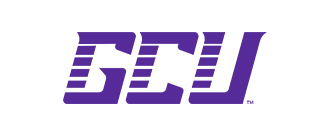About
About Grand Canyon University
Chartered in 1949, Grand Canyon University (GCU) in Phoenix, AZ, began as a school granting bachelor's degrees in education. Today the school awards undergraduate and graduate degrees in nursing, business, psychology, medical sciences, communications, engineering and technology, political and social sciences, teaching, theology, and more. GCU is a private Christian university serving more than 19,000 on-campus and 60,000 online students, and it is accredited by the Commission on Institutions of Higher Education.
Need foundational studies in business, accounting, marketing, or economics? Or perhaps you're considering more advanced studies in leadership and managerial practices in accounting, marketing, and operations with the goal of becoming a business leader or executive. If so, the online MBA might be for you. Are you interested in helping people in the medical field as a registered nurse? GCU's bachelor's degree in nursing is a pre-licensure program that prepares you to sit for the NCLEX-RN licensing exam through courses in adult health, health assessment techniques, pharmacology, and health informatics. If your goal is to teach at the K-12 levels, you can consider GCU's early childhood education, elementary education, or secondary education programs that cover such topics as classroom management, instructional methods, and lesson development and are designed to lead to initial teacher licensure. Your future as a computer programmer, engineer, counselor, or minister could also start with specific bachelor's and master's degree programs at GCU.
Doctoral degree programs in business, nursing, psychology, or education are also available, and they allow you to explore relevant theories and leadership principles and could prepare you for careers in academics or to fill management roles in various types of organizations. Want the benefits of being an honors student? GCU's Honors College provides not only an enhanced curriculum in your area of study, but offers mentoring opportunities with faculty members, seminars, and special on-campus events. Individual bachelor's and master's courses are available online in various areas, such as education and nursing.
Student Testimonials
''This is the college experience I dreamed about. I'm in the program helping me work towards my dream career, and I am surrounded by people who are caring and very open within a Christian campus. I would recommend Grand Canyon University to my friends because of the quality of the programs, scholarships and how family oriented this University is.''
- Justin Atkins, GCU Student
Why Grand Canyon University?
- Flexibility: Working professionals seeking convenient evening classes could choose to complete their studies 100% online, or in a combination of hybrid of evening and online classes. At GCU, you have options to fit your studies into any schedule.
- Student experience: From new classroom building and state-of-the-art athletic facilities to popular dining options and NCAA Division I athletics, GCU offers a full college experience to its students; even online and evening students have full access to all events and resources.
- Financial assistance: GCU offers a variety of financing options, including grants and loans as well as scholarships for on-campus students and special offers for online students. GCU helps you throughout the process, from estimating costs to securing whatever type of aid you're pursuing.
- Career resources: Effective resume and cover letter writing, interviewing and networking skills development, an online job and internship board, and on-campus company events are among the highlights of GCU's career resources at the school's Academic and Career Excellence (ACE) Center.
Minimum Eligibility Requirements
As an applicant to Grand Canyon University's programs, you must possess a high school diploma or GED. Some programs have additional requirements.


.svg)

